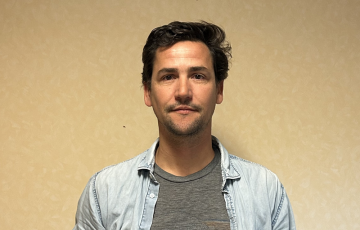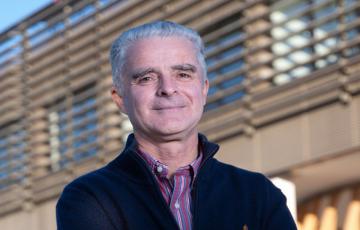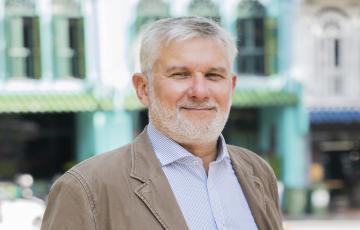Aix-Marseille-Provence invests in decarbonization and the energies of the future
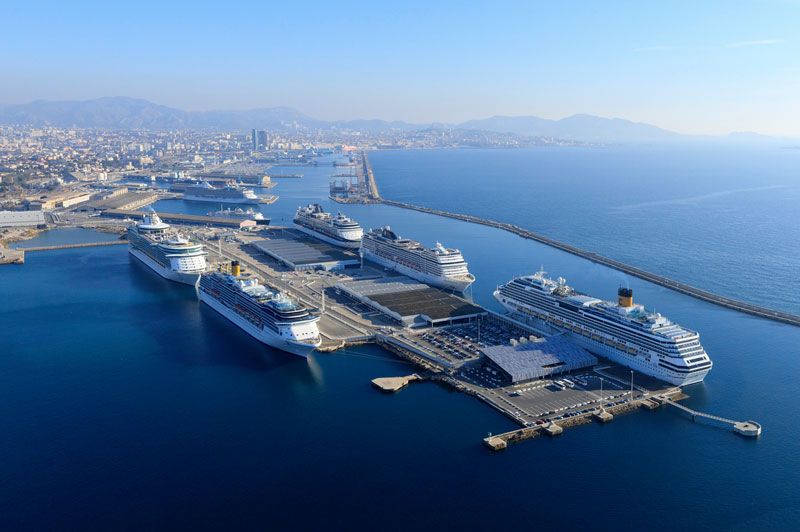
View of Provence, embodying the decarbonized economy
Decarbonization and the energies of the future are major issues worldwide. One of the largest industrial centers in France and the leading hub for chemicals and petrochemicals, the region and some of its largest stakeholders have been committed to this path for several years now, helping to fund research projects and the modernization of existing facilities.
With support from the state and local authorities together, with the involvement of major groups and input from start-ups and professional groups, a whole ecosystem is working to make this change over to a more sustainable production model. A movement that involves powerful initiatives to accelerate the energy transition and a strong desire to welcome new players driving this change – players seeking to invest in this region that is ideally located at the crossroads between Europe and Africa.
In Provence, decarbonization is underway across all industrial sectors, the aim being to reduce greenhouse gas emissions and promote the use of cleaner fuels. Pioneering initiatives have resulted in large-scale projects.
Spearheading this aim for the maritime sector, CMA CGM, TotalEnergies and the Port of Marseille-Fos are investing heavily in establishing the Marseille-Fos Major Maritime Port as the first fully decarbonized port in France and the Mediterranean region. This involves electrifying the quays, creating a fleet of LNG-powered vessels, developing infrastructure for refuelling them and switching to BioLNG produced from household waste from across the Aix-Marseille-Provence metropolis. Progress made in decarbonizing transport that is picking up speed and also benefiting the air sector with Airbus Helicopters. The world leader based in Marignane has just completed the first flight of a helicopter powered by completely sustainable aviation fuel (SAF for "Sustainable aviation fuel") developed at the La Mède TotalEnergies biorefinery.
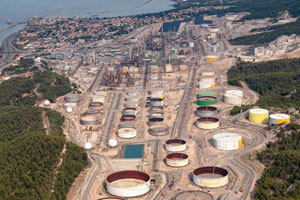 Decarbonization of industry around the Etang de Berre
Decarbonization of industry around the Etang de Berre
Over southern Europe's largest industry-port area, EDF, LyondellBasell, Arcelor Mittal, TotalEnergies and ENGIE have invested nearly 2.2 billion euros in modernizing their plants and creating the conditions under which the industry of the future can be developed. The Masshylia project, designed to produce green hydrogen using photovoltaic solar energy in order to supply TotalEnergies' biorefinery in La Mède, will be a model industrial decarbonization project.
With the PIICTO association (created in 2014) stakeholders in the heavy industry and energy sectors are working together to create synergies around circular ecology. Experiments – such as Vasco dedicated to the production of biofuel from industrial fumes or Jupiter 1000 that involves Power to Gas – which decarbonize networks by injecting gas from renewable sources, are now reaching maturity.
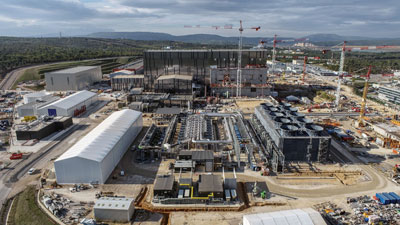 ITER, nuclear fusion – the energy of the future
ITER, nuclear fusion – the energy of the future
Although the region is focusing its development on the power mix by combining all the opportunities offered by renewable energies, the aim of the global ITER scientific cooperation project based in Cadarache in the Bouches-du-Rhône département is to demonstrate the feasibility of nuclear fusion as a way of creating a new source of energy that is safe, reliable and environmentally friendly. 35 countries are involved in this international programme. The first plasma-production fusion test is scheduled for 2026.
Aix-Marseille, un territoire catalyseur de projets innovants
In addition to these major projects, the region is also home to a number of start-ups. They are attracted to it by the numerous schemes available, such as the Smart Port Challenge competition all about port innovation, and the Med’Innovant competition staged by the Établissement Public d’Aménagement Euroméditerranée (Euro-Mediterranean public planning body), which is currently running southern Europe's largest urban renewal and town center economic development project in Marseille.
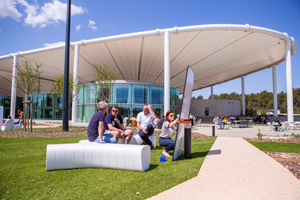 Start-ups such as Searoutes, Green Sea Guard, Bovlabs and Eura Nova are now picking up speed with their projects in the region to bolster cybersecurity, adopt green technologies and even use big data to increase efficiency.
Start-ups such as Searoutes, Green Sea Guard, Bovlabs and Eura Nova are now picking up speed with their projects in the region to bolster cybersecurity, adopt green technologies and even use big data to increase efficiency.
New companies are welcomed every year at centers designed to speed up innovation – such as thecamp which is dedicated to positive innovation and the CleanTech hub of the Arbois Technopôle in Aix-en-Provence. In fact, the Aix-en-Provence CleanTech is one of the world's top 5 cleantech centers, and is where 25% of the prize-winning French startups featured at the next CES in Las Vegas are based.
Decarbonization and regional development
With Euroméditerranée, Marseille is launching major projects to build the low-carbon economy of tomorrow. Over 480 ha, it is the perfect location for testing the Mediterranean city's sustainable innovations.
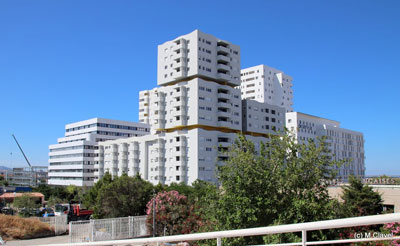 As far as tackling climate change is concerned, the region has established itself as a pioneer in the field of large-scale thalassothermy. This marine geothermal technology involves using seawater to heat and cool offices and homes. It has been deployed across the Euroméditerranée region via two seawater loops: Thassalia and Massiléo. One million m² of homes and offices are connected up to these fully renewable energy networks, including homes in the Smartseille district, the historic Docks building and most recently the Les Terrasses du Port shopping center and its 190 shops (totaling 63,000 m²). A first in France.
As far as tackling climate change is concerned, the region has established itself as a pioneer in the field of large-scale thalassothermy. This marine geothermal technology involves using seawater to heat and cool offices and homes. It has been deployed across the Euroméditerranée region via two seawater loops: Thassalia and Massiléo. One million m² of homes and offices are connected up to these fully renewable energy networks, including homes in the Smartseille district, the historic Docks building and most recently the Les Terrasses du Port shopping center and its 190 shops (totaling 63,000 m²). A first in France.
And the innovative solutions to decarbonize the region do not end there! New projects get underway on a regular basis. On 27 November, Interxion brought an environmentally friendly river cooling system for its data centers into service, involving €15 million of investment.


 +33 4 96 11 60 00
+33 4 96 11 60 00





